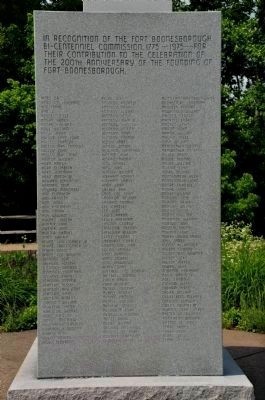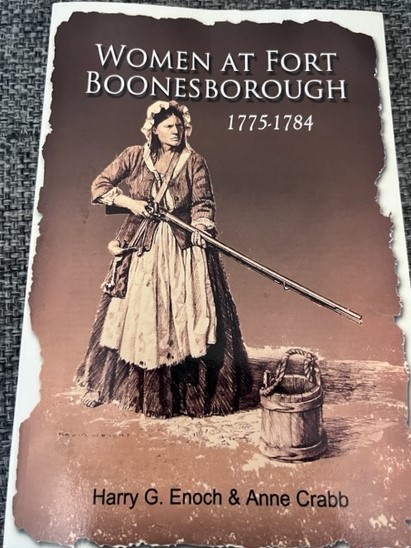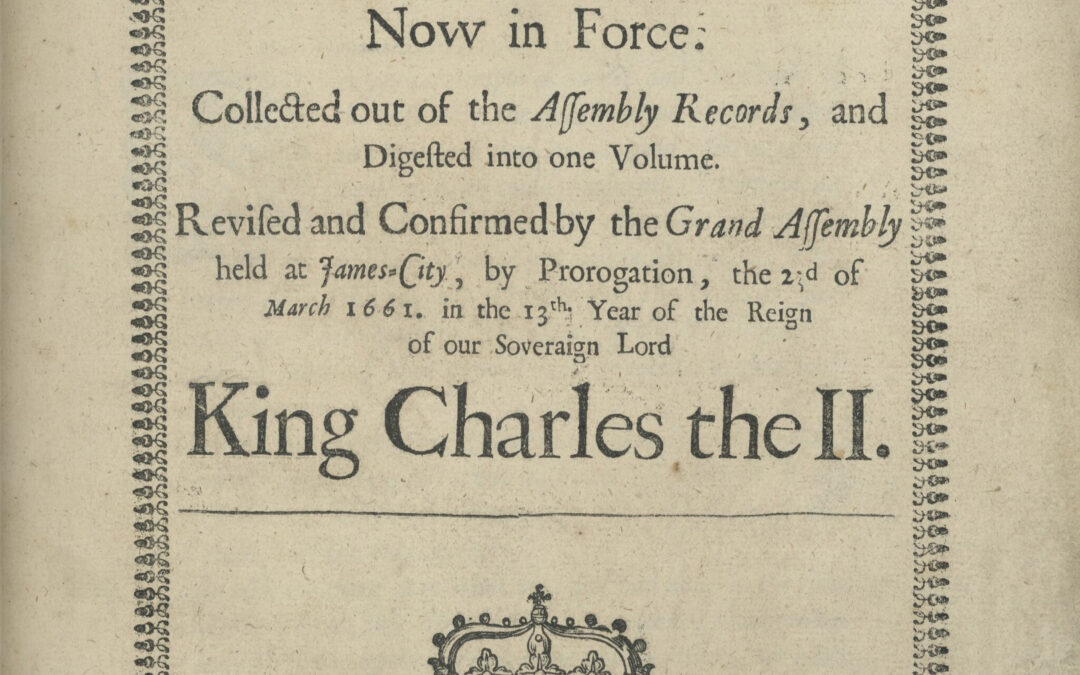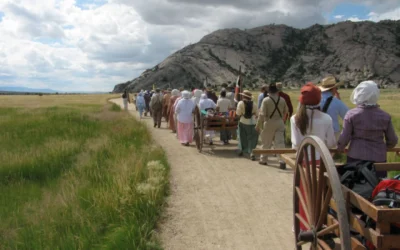To explore this question, I reference various sources to document the case that Elizabeth Horn may well have been the first female landowner within what later became part of Kentucky.
First Families
Elizabeth Horn moved to what is now Kentucky in April 1778 with her husband Aaron Horn, Sr., and a large family. Within months, she became a widow following Aaron’s death shortly after the “Great Siege” at Fort Boonesborough.
Elizabeth’s name along with Aaron and three under-age sons are on the monument outside today’s replica of Fort Boonesborough. The dedication on the monument recognizes these names as among “The First Families of Kentucky.” There were few females in the fort in September 1778 as it was mostly enlistees from Virginia there to defend the fort.
From Virginia to Fort Boonesborough
Elizabeth had moved several hundred miles with her family from the Holston River area of southwestern Virginia to Fort Boonesborough. It is hard to imagine moving that distance with children on foot, through wilderness and over mountains. They were moving from one difficult existence to an even more remote area. The threat of conflict was well documented in pre-Kentucky history. Pioneers were trespassing upon Shawnee territory, a great food source. The Shawnee people had every right to defend and protect their valuable resources.
This was not the first move for Elizabeth and her large family. They moved from Maryland to Virginia in 1774, another difficult move through contested land with younger children. If tough times build character, the Horn family certainly endured difficult challenges in the 1770s.
Upon arrival at Fort Boonesborough, they found exceedingly difficult living conditions. Just two months before, “On February 8, 1778, Boone was out hunting meat when he was captured by a group of Indians.”(1) He was surprised and captured by warriors led by Chief Blackfish. With the food supply at Boonesborough running low, the settlers needed salt to preserve what meat they had. Unable to dislodge the Kentuckians from their fortified settlement, the Indians destroyed crops and killed cattle. Daniel Boone and his men remained captives for several months, significantly impacting the ability to defend the fort that would come under attack that September, known as the “Great Siege.” However, Fort Boonesborough was defended and survived, including the Horn family living within the fort.
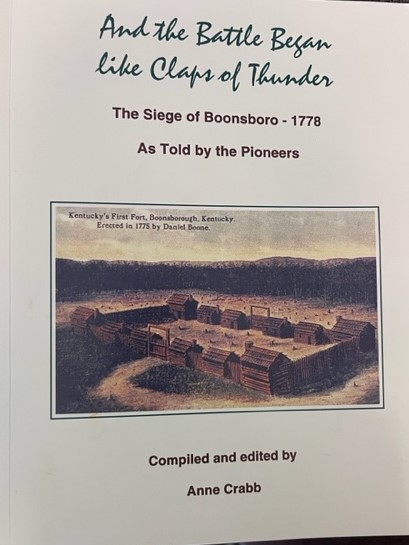
And the Battle Began Like Claps of Thunder; The Siege of Boonsboro – 1778 As Told by the Pioneers Compiled and Edited by Anne Crabb
Boonesborough: First Chartered Town of Kentucky County Virginia
“The fort became the first town chartered in Kentucky, October 1779 by the Virginia Assembly.”(2) How did this come to be?
In 1779, the Boonesborough pioneers filed a petition with the Virginia Assembly, “The Distressed Inhabitants of the county of Kentuckky.”(3) The following was copied from this source: “Whereas we your distressed petitioners, situate in this remote part, exposed to all the Barberous ravages of inhuman savage, whose savage disposition, being animated by the rewards of Governour Hamilton has Petitions of the Early Inhabitants of Kentucky enabled, them to hold up a constant war this four years, which term has reduced many of us so low that we have scarce cattle amongst us to supply our small Family’s and many of us that brought good stocks of both Horses and cows, now at this juncture have not left so much as one cow for the support of our family’s, which to our great disadvantage may plainly appear to every spectator, we have thought proper to present you with a just estimation of our losses in settling and defending this extensive country, which we hope will contribute much to the benefit of the common charge, by virtue of the late act of Assembly, in opening and establishing a Land office, tho at the same time we your depressed petitioners many of us will be intirely deprived of the opportunity of geting so much as one hundred acres of land, notwithstanding the loss of our properties and so many of our lives which we have expended in Defence of this country, except we your petitioners get speedy redress by this our petition…”(3)
“Three signers of the above petition were widows at the fort: Catherine Baughman, Margaret Drake and Elizabeth Horn.”(4)
The Virginia Assembly passed “An Act for Establishing the Town of Boonesborough in the County of Kentuckey” during the session that commenced on October 4, 1779. “The act appointed several men including Daniel Boone as trustees.”(5)
Elizabeth Horn’s Lot in Boonesborough, Circa 1779
“The first task required of the trustees was to create a town plan showing the lots and streets already laid out on the initial twenty acres as well as the additional fifty acres.”(6)
In Nancy O’Malley’s book, Boonesborough Unearthed, on page 45, she presented a list of Lot Owners in Boonesborough, c. 1779. Lot #36 lists the owner as Elizabeth Horn. On page 44, Ms. O’Malley stated the following: “Most of the signatories were men who had been at Fort Boonesborough or in the area for several years……and the sole woman, Elizabeth Horn, who was a widow…”(5)
Making the Case for Elizabeth Horn as the first female landowner of what Became Kentucky Land
-
- Elizabeth Horn was among the first families of Kentucky, arriving in April 1778.
- Elizabeth Horn signed a petition along with two other widowed women, seeking land in 1779.
- Elizabeth Horn was the sole woman lot owner in Boonesborough in 1779, the first chartered town approved by Virginia in December 1779.
What about the other two women who signed the petition in 1779?
-
- Catherine Baughman – Her husband, John Baughman, was killed in 1779. In February 1780, John Baughman’s estate was awarded to Michael Shirley, who was Catherine’s father.(7)
-
- Margaret Drake – Her husband, Joseph Drake, was killed in 1778. She was also awarded land in 1779; however, it was not located in Boonesborough, explaining why she didn’t have a lot in the new town.(8)
Sources
-
- https://www.revolutionary-war-and-beyond.com/daniel-boone-captured-by-british-shawnee-war-party.html
-
- Fort Boonesborough Historic Highway Marker at Fort Boonesborough State Park.
-
- “Petitions of the Distressed Inhabitants of the county of Kentuckky,” James R. Robertson (Louisville, KY, 1914), Petition #8.
-
- Women At Fort Boonesborough. 1775-1784, Enoch & Crabb, Fort Boonesborough Foundation. 2014, p. 31.
-
- Boonesborough Unearthed, Nancy O’Malley, 2019 University Press of Kentucky, p. 40.
-
- Ibid., pp 41-42.
-
- Women At Fort Boonesborough. 1775-1784, p. 53.
-
- Ibid., p. 82.

